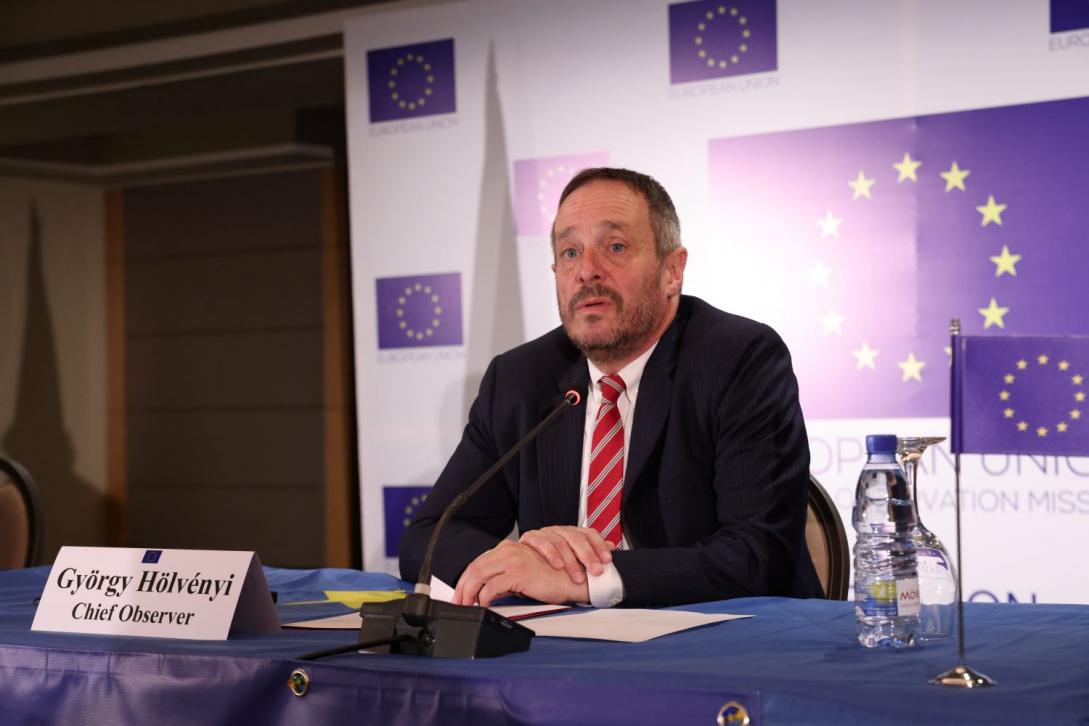Today, György Hölvényi, Chief Observer of the European Union Election Observation Mission (EU EOM), ended his six-day visit to Lebanon, during which he met with Lebanese State and local authorities, electoral bodies, political parties, religious leaders, as well as with representatives of international and civil society organisations.
Mr. Hölvényi, a Member of the European Parliament from Hungary, highlighted that: “the EU EOM is impartial and is independent of the European institutions”. He also pointed out that the mission does not judge the electoral outcome and does not in any way validate results, but it evaluates the electoral process and its compliance with regional and international commitments on political participation and democratic elections that Lebanon has subscribed to, as well as with good electoral practice. “We are not here to interfere in the process, we are not investigators,” he added.
In response to the invitation by the Lebanese Ministry of Interior and Municipalities, the European Union has deployed an Election Observation Mission to Lebanon to observe the parliamentary elections scheduled on 15 May 2022.
A core team composed of ten election experts covering the different aspects of the electoral process has been in Lebanon for the past two weeks. Yesterday, our 30 long-term observers arrived in Beirut and, after a training, on Thursday 14 April they will be deployed in teams of two to all the regions of the country where they will be based until after Election Day. On 15 May, the mission will comprise more than 150 observers from all 27 EU member states, Norway and Switzerland. The EU EOM will conduct an exhaustive and comprehensive assessment of the elections, their preparations, the campaign, as well as the voting, the counting of votes, and tabulation, until the post-election period with possible appeals and complaints.
Two days after the elections, the EOM will present to public opinion a preliminary assessment of the process up to that date. A few months after the elections, a representation of the mission will return to Lebanon to share the final report with authorities, electoral bodies, political parties and civil society. The report will include recommendations for possible reforms of future electoral processes. The EU EOM will remain in the country until the conclusion of the electoral process.
